He gazes out across the landscape, shocked at what he's seeing. This is it. This is the Vision he has seen over and over in his mind. A vision of a brutal, lifeless landscape. No plants. No birds. No animals. No people. Just the repetitive movements of the last oil drilling machines that haven't broken down yet are swinging up and down, up and down like giant sewing machines. Sewing machines that have long been forgotten by their operators.
All around is a forest
. But not a forest of life-giving trees. Rather a forest of rusted metallic skeletons, hundreds and hundreds of oil drilling rigs scattered all across the gray landscape. A forest of death.
He takes a few moments to let it all sink in. Then, suddenly it hits him. This is where it all began. This is where oil was first mechanically drilled from the ground. This is where the The Age of Oil was born. And now... 150 years later... I'm getting a glimpse of how it might end.
He continues walking. A cluster of houses appear. Miserable looking homes with ragged, dirt roads. Whatever positive things these oil wells have brought to the world, they certainly don't seem to have benefited the people who live here very much. A polluted, gray wasteland with poisoned groundwater and lung killing air... this does not look like a pleasant place to live by any standard.
He continues on, trudging down the ragged streets, rarely making eye contact with the dwellers of this place
. He reaches a cemetery where the dwellers of this land who perhaps spent their lives in this godforsaken place, finally ended their earth experience...
Unable to continue on, he turns around and goes the other way.
Suddenly, in front of him, is a castle. A sturdy stone structure with semi-arched entrance and a tower in front. This is the Temple of Fire.
For thousands of years, this was a place of mystery and superstition. An eternal flame rose from the ground, burning and burning, but never going out. People came to observe, and since they couldn't explain it, they worshipped it. Worshipped the fire rising from the ground. Pilgrims came from far and wide to worship at this spot.
All this changed with the arrival of science and research. Scientists, entrepreneurs and capitalists came here, not to humbly bow to theses flames, but rather to figure out how these fires could make them rich
. They correctly concluded that there was a vast amount of flameable fuel under the ground. Fuel that could be used to to power their machines and factories. They extracted this fuel in massive quantities. For a time, 1/5th of the world's oil was extraction took place in just this one city.
As a result, the flames of this Fire Temple were extinguished.
The Traveller goes inside to the center courtyard of the castle. Here, a new fire has been lit, a token reminder of a world that used to be. In the dingy rooms surrounding the courtyard are statues of Hindu priests who once made their abode here.
Nowadays, this Fire Temple is still the symbol of the country, even though almost all the population is Muslim... and very few people worship fire any more. However, oil, the fuel of this fire, is what has made this country what it is today.
The Traveller continues on, walking through the dusty neighborhoods, along long stretches of open road and empty fields
. On to another livelier neighborhood of nice restaurants and folks who appear to be benefiting at least a little of the good things brought to the by the Age of Oil... steady income... variety of food and things to spend their money on. More pleasant looking dwellings. The Traveller joins the crowd in a large cafeteria-style restaurant where he can just point and pick whatever dish strikes his fantasy. The post-Apocalyptic wasteland he walked through just a few hours ago seems a million miles away.
But he knows it isn't. He knows that it wasn't just a depressing landscaped he happened to walk through. It was a Vision. A Vision of the entire swath of the Age of Oil from its simple beginning to its cruel, self-destructive end. A Vision, not just of a run down neighborhood of Baku... but rather a parable of the entire world of the 19th-21st century.
300 years of the Human Experience, crammed into just a couple of hours.
But he knows it was nothing more than a glimpse
. There is more for him to see up ahead. Much much more. It will take an entire lifetime for him to really understand what the Human Experience in the Oil Age is all about.
There are thousands of towns to visit... Hundreds of people to meet... tens of thousands of kilometers to walk.
A journey that will take him all the way around the world.
Arrival in Baku Proper
It's nighttime when he finally reaches Baku proper, and he realizes he's got a problem. he foolishly didn't exchange any money at the border and now it's night and there's no place to change money so he can catch a bus to the city center. he wanders around the sprawling multi-storey bus station/shopping center but no luck.
"Well, I suppose I could walk to town," he tells himself despite his misgivings about doing so in a country he still doesn't know at all
. But he decides to give it a try. He walks a little ways until he reaches a forest on one side with apartment buildings on the other side at the top of a steep hill... he follows the winding streets looking for a way up the hill, but the neighborhood gets scruffier and scruffier until he's trudging along a rocky alley alongside cemetery--a dubious sign... and it looks like he's headed to a dead end.
He spots a fellow coming out of a house and figures he'd better break with tradition and ask for directions.
"Sehir Merkezi?" (Turkish for downtown) he inquires.
the man seems puzzled and concerned. Clearly the Traveler is way off. the man offers to drive him back to the bus station. The Traveler figures he'd better stop pushing his luck and accept. so he clambers into his rickety Soviet antique and heads back to where he started.
Back next to the bus station, there are couple taxis and his guardian angel drops him off
. Foolishly he asks the taxi driver of there's a metro station nearby. The taxi driver tells him that the metro is closed already (which is a lie--but what would you expect?) He agrees to take the Traveler to town for 10 Euros.
Since there's no way he's going to wander off into the dark again, he figures he'd better accept.
Soon they enter a grand, noble city, noble buildings that look golden in the night light... feeling much better about this place... Finally they reach the gates of the old city where he get off... hands the 10 Euros... The taxi driver shakes his head. He indicates that he wants more--a lot more.
The Traveler stands his ground. No. He uses gestures and Tarzan English to make his point: we agreed on 10, I pay 10. Somebody comes over to see what's going on (who doesn't speak English either) and then walks away.
He's trying to read this guy
. Could he be violent? If I walk down the dark street will he follow me? Azerbaijan feels like a culture unlike any experienced before, so the tactics I wold take in another country might not work here...
Finally he decide a popular but risky trick. he shrugs my shoulders and say "polizia" (means: call the police if you want and let them sort it out) That works. He accepts the 10 Euros and drives off.
The Traveler quickly hurry into the clean, quiet old city where he feels he can finally breathe more easily. His nerves are a bit rattled, but he's determined that this rocky start isn't going to set the tone for his Azerbaijan experience.
Let's call it a day.
Day 2: The Grandeur of Baku
He walks down a narrow alley into the heart of the Old city. Then, out the gates and to the shores of the Caspian Sea
. All around him everything is immaculate. The shoreline is one giant park, lined with regal looking buildings and full of gardens and sculptures. To get there, you take a pedestrian underpass with marble walls and escalators to get down. This place feels more like Monaco than the Caucasus.
The city feels like a strong central government decided to give the entire city a complete makeover--building the new and making the old looks like it's new. Even the Old City looks like crisp and perfect--as if it were built yesterday.
And it's very clear where the money comes from to build all this: oil.
The city is still quiet as he wanders through the pedestrian street into the heart of the city, down the stately corridors. There's a variety of architecture here but it does seem to have a clear theme, of a neo-Ottoman style with buildings of carefully cut beige stone blocks and, within the Old City, wooden balconies
. What Baku does seem to be lacking in is an abundance of cheap eateries as Turkey. he finally does find a doner shop, but it's not very good.
Back in the old city, he checks outout Baku's trademark Maiden Tower, which is circular, with a section of wall jutting out a short ways. Legend has it that the king's sister was inprisoned here, and chose to jump to her death rather than stay in this prison.
Nearby is a a small area of ruins that is open to the public, as well as some cozy little gardens. Quite fascinating to explore--even though it does feel kind of artificial and plastic. it's doubful that this is what the "real" Azerbaijan looks like where average people live ... but you can still take your time enjoying it.
The more he explores, the more confused he gets about how to categorized this country. Sometimes it feels like I'm in Turkey... Sometimes it feels like Western Europe.
.. sometimes like Iran and the Middle East... and sometimes you can still feel the shadow of the Soviet Union--or maybe even Central Asia. Azerbaijan feels like the ultimate "in between" country.
One way in which it definitely does not feel like Turkey or the Middle East is the lack of mosques and religious expression you see--and hear everywhere there. The days go by and he doesn'tt hear the call to prayer anywhere in the city! I Turkey you can here 5 or 6 mosque calling to prayer simultaneously. It's extremely rare to see a woman wearing a Muslim headscarf (hijab). he does spot one guy discreetly praying in his shop, but it's clear, if people practice their Muslim faith here, it's a very personal thing.
There's something very intriguing about this Azeri style of Islam....
He reaches the top of the hill where Baku's brand new signature modern structures are: three steel and glass skyscrpers high on a hillside, with a beautiful curvy shape
. At first he thinks they look like three petals of a flower opening up, but then he realizes that they are supposed to be flames--symbolizing the source of Baku's wealth and power: oil. At one time there was a place where fire burned endlessly as the oil seeped out of the ground. This was a pre-Islamic place of worship, and the fire temple can still be visited today.
Across from the fire towers is a more solemn and painful symbol of modern Azerbaijan: a military cemetery. he walks through and notice all of these guys died in the same year. Odd.
Oh... that's right... the Azerbaijan-Armenia War. This is a still unresolved territorial conflict which the rest of the world has pretty much forgotten about. But for people here it's very real. In fact, in just about every town he visits here in Azerbaijan and later in Armenia he'll be reminded of this conflict in one way or another.
Obviously way to early to try to give an assessment on this
... all he can think is that it's sobering to see the tombs of all these young men lined up--and to realize this didn't happen 100 years ago... "these guys were about the same age as me when they died."
Nearby there's a typical Turkish mosque and a monument to Turkey in gratitude for its assistance during this conflict. At the end of the cemetery there's are 4 pillars with a sphere at the top, a monument to those fallen the the war, with a panoramic view over the Caspian Sea.
Heading back inland, he come across another cemetery which puts him in an entirely different mood. This seems to be a cemetery for the "who's who" of Azerbaijan, and each tomb has a statue of the person buried there. But instead of just doing a generic statue of ther person standing stoically, each statue it seems tries to bring out something unique and special about that person... one has the fellow standing with arms outstretched with an expression of exhileration
... another has the guy playing a piano... another has him with hand on chin, deep in thought.
Not often you visit a cemetery that leaves you feeling happy and inspired. "Tell you what, I think I'd like to be buried in this place... how about a statue of me playing guitar on a park bench?" he thinks to himself...
Another thing that many Muslims would consider "un-Islamic" about Azerbaijan. Others would say that Muslims shouldn't have statues of themselves, that tombs should be simple... to which the response should be, who is the true authority to say who is a "true Muslim" and who isn't?
He continues on to away from the neo-Ottoman styled down town, to an area of high rise building--still fairly well maintained though. Here a middle aged fellow approaches him and talks to him in English, which he's quite happy to hear. The man is a university professor, and invites the Traveler to stop at his university and meet a couple of his students
.
The Traveler comments at how beautiful Baku is.
"The problem is that wages are extremely low here, and the cost of living is high. I'm a university professor--and have to have a second job just to survive."
At the university we talk to a couple students and have some tea. The Traveler asks if they could take a picture together and they agree. After they take the picture and the professor looks at it, he says. "Take it again--I don't like this picture of myself"
"why not?"
"I was smiling"
Now it's not true what it says on the internet that Azeris never smile in public, but, yes, they do clearly give more importance to "looking serious" than looking happy.
It's a very enjoyable encounter, but then takes a rather disturbing turn
. One of the staff asks the Traveler if he know about Ramil Safarov. he says no.
"He killed an Armenian student in Budapest who insulted the Azeri flag. Ramil was put in prison--but now he's been set free... he's our hero!" she says proudly.
He does a little research on this later, to try to get the full story. In the sources he finds, it doesn't say anything about the Armenian insulting the Azeri flag, just that Ramil brutally butchered him with an axe while he was sleeping. The Hungarians put Ramil in prison but turned him over to the Azerbaijan government (some say there was an oil deal involved in this). Instead of keeping him in prison, he was recieved as a national hero.
"Wow. Did I get that right? Something's really, really messed up about that. So is this going to start a new trend?" he ponders. What about the Armenian and Azeri neighbors in, say, Los Angeles... Should they just start killing each other so they too can come back to their countries and be recieved as heroes? What if all the people who immigrate abroad started doing that, carrying their ethnic grudges with them and killing people of the ethnic group they don't like? Let's hope not--or the world is going to become a very scary place
.
During this trip this Subtour going to learn to understand the word "hate" in a whole new way.
He bids his new friends goodbye and continue on his way, down a wide boulevard as the grandeur of central Baku starts to fade and it starts too feel more like a developing country. he reaches a large, lively indoor market that looks a lot like, say, Mexico, then down to another beautiful boulevard with a park running down the center with all sorts of creative sculptures... He decides to go ahead and pause for my Baku parkbench session, before heading back to the grand city center, all lit up like a giant palace.
In the evening takes a stroll along the seaside boardwalk, towards a giant flagpole. On the horizon, the iconic flame skyscrapers ares are turned into giant light screens--sometimes lit up like flames... sometimes with theimage of a silhouette waving the Azerbaijani flag... quite impressive
. you just wonder... how long will that image last? When bulbs start burning out, will they be quickly replaced, or will this crisp, shiny city start to lose its shine?
Another beautiful spot is a restaurant surrounded by a series of canals that you can ride around in boats on. It feels surreal though, to come here after a day of experiencing the "real" Azerbaijan which are still lacking in many of the basics.
Day 3: The people of Azerbaijan
The Traveler takes some time to observe and interact with the people around him. He chats with some of the other travelers at the hostel. It seems for those heading east, Baku is the "end of the road"... to continue on east, one must either cross the Caspian Sea, or try to go around it through some visa-unfriendly countries.
There's the young cyclist from Switzerland... a motorcycle rider from Belguim... each coming to get a taste of the easternmost edge of Europe
.
For others, Azerbaijan is merely a transit country in the quest for a better life. He talks to a Georgian going to Russia looking for work.
"To Russia... why are you going THIS way?" The Traveler asks using hand gestures.
The Georgian explains: The borders have been closed for Georgians to go to Russia (even though Russian tourists can still visit Georgia!) so, to get to Russia he has to make an epic journey, all the way across Azerbaijan, wait for a cargo boat across the Caspian sea to Turkmenistan, then through, Uzbekistan, Kazakhstan--and finally loop back to Russia... And the only reason he can get in that way is because he has Uzbek citizenship!
No wonder Georgians get irritated when they see Russian tourists in their country!
The Traveler observes the people around him. People definitely have a different physique then in neighboring countries
. Dark hair (men seem to like the Ceaser haircut) and a distinct look that's sort of between Turkish and Iranian. He's intrigued already about this "in between" country... Is this place culturally European? Middle Eastern? ex-Soviet? Central Asian? Looking forward to finding out.
Here people speak speak Azeri and can understand Turkish because it's so similar to Azeri . The TVs show a lot of Turkish programs which people follow without a problem. Azeris feel a close affinity with Turkey, which is actually refreshing. So many of the other former colonies of the Ottoman Empire seem to just focus on the negative aspects of the Ottoman rule--surely were real. But it's still nice to see a different attitude.
Then the 3rd language is Russian, which is not just to to it's Soviet past. Russia is the place to go for Azeris looking to work hard and live a better life. So it's much more useful for them to learn Russian than English. It's not that Azeris love Russia--it's just the reality
. Getting to Western Europe or America is so difficult many don't even dream of it. But going to Russia is relatively easy, and since Azeris are harder workers than Russians (so they say) they're able to find jobs and make good money.
It's a concept a little hard to get used to for an American who grew up doing the Cold War. No, America is not the "Center of the World". Yes, despite all the anti-Russian propaganda we still hear, there actually are poor people who go there and find a better life.
When the Traveler asks Azeris how the Russians treat them, he gets mixed reviews. Some say they are racist towards Azeris, others say they get along fine.
"But the winters are too rough for us" he's told. "many people just work in the warmer months and return to Azerbaijan in the winter"
Day 4: Meeting with The Mentor
There's a special reason he needs to be in Baku: today he's meeting up with Giles, the veteran traveler
. With emails they prearranged to meet outside the Old City subway station, and he tells Giles to look out for a guy carrying a guitar on his back. I'll be easy to spot, right? Wrong. As he waits, a whole crowd of music students gather--ALL carrying guitars on their backs!
Now that doesn't happen every day.
Giles has the same trouble the Traveler had with the Soviet era subway signage--but they finally manage to meet up, and go ahead and do another tour of the city together--mainly the Traveler just wants to learn from this fellow and hear his stories.
Giles is not only a skilled traveller, he's also very knowledgeable in a wide array of subjects because, first of all he knows how to think outside of the box, and secondly, he's constantly learning from people he meets along the way. He tells of how after school he worked at a bank for a couple years, hated it, and has never worked a typical 9 to 5 job since
. Instead he perfected his business skills, starting out as a door to door salesman, until he was able to work for just a portion of the year and travel for the rest of it. He also has all kinds of stories of people who have managed to make money while traveling. The Traveler wastes no time picking his brain for ideas that might work for him.
"In Mexico I met a couple who would buy concentrated perfumes in Mexico City, then travel south, mix the perfumes and sell them on the sidewalk--and finance their travels that way!"
Giles tells about his epic journey in his younger years, starting in Thailand (where he extended his stay by becoming a monk and joining a monastary) then he traveled across Asia through Afghanistan, then down into Africa where (this was back in colonial times) he arrived in Rhodesia and immediately was handed a machine gun and got a job guarding the workers--just because he was white!
Giles has keen insights into all kinds of cultures--Africa, Asia, the Middle East, as he's an excellent observer
. He gives me insights into apartheid in South Africa, the war in Iraq, starvation in Ethiopia, the meaning of Buddhism and why Botswana is an African success story.
"Why don't you write about your experiences? So many people could benefit from your knowledge and experience."
"When I think of writing I think of it as something I'd do if I were an invalid or had a long term illness--it's just something I'm not interested in, it's too much work."
The Traveler knows he's privileged to be able to learn from this fellow. "For the first time that I can remember, I've met an older fellow that I can look at and say. 'I hope I can have as many memories, experiences and insights as him when I reach his age' "
The Grandeur of Baku
Thursday, August 30, 2012
 Baku, Azerbaijan
Baku, Azerbaijan
Other Entries
-
1Post-visit Istanbul: A 150 km Wide City
Aug 2010 days prior Istanbul, Turkeyphoto_camera28videocam 0comment 0
Istanbul, Turkeyphoto_camera28videocam 0comment 0 -
2Postvisit: Hanging out with an old Friend
Aug 219 days prior Istanbul, Turkeyphoto_camera35videocam 0comment 0
Istanbul, Turkeyphoto_camera35videocam 0comment 0 -
31292. The Black Sea Coast
Aug 228 days prior Samsun, Turkeyphoto_camera26videocam 0comment 0
Samsun, Turkeyphoto_camera26videocam 0comment 0 -
41293. Night in a Cozy Coastal Town
Aug 228 days prior Unieh, Turkeyphoto_camera13videocam 0comment 0
Unieh, Turkeyphoto_camera13videocam 0comment 0 -
51294. Artificial Waterfalls
Aug 237 days prior Fatsa, Turkeyphoto_camera17videocam 0comment 0
Fatsa, Turkeyphoto_camera17videocam 0comment 0 -
61295. Restoring Old Building
Aug 237 days prior Ordu, Turkeyphoto_camera27videocam 0comment 0
Ordu, Turkeyphoto_camera27videocam 0comment 0 -
7The Las Vegas of the Caucasus
Aug 246 days prior Batumi, Georgiaphoto_camera82videocam 0comment 0
Batumi, Georgiaphoto_camera82videocam 0comment 0 -
8Religion in Post-Soviet Georgia
Aug 255 days prior Kutaisi, Georgiaphoto_camera56videocam 0comment 0
Kutaisi, Georgiaphoto_camera56videocam 0comment 0 -
9The Wannabe Castle Guards
Aug 264 days prior Surami, Georgiaphoto_camera9videocam 0comment 0
Surami, Georgiaphoto_camera9videocam 0comment 0 -
10Strangely Quiet Town
Aug 264 days prior Khashuri, Georgiaphoto_camera7videocam 0comment 0
Khashuri, Georgiaphoto_camera7videocam 0comment 0 -
11Stalin's Hometown
Aug 264 days prior Gori, Georgiaphoto_camera41videocam 0comment 0
Gori, Georgiaphoto_camera41videocam 0comment 0 -
12Georgia's Eclectic Capital
Aug 273 days prior Tbilisi, Georgiaphoto_camera152videocam 0comment 0
Tbilisi, Georgiaphoto_camera152videocam 0comment 0 -
13Lost in the Brambles
Aug 282 days prior Sighnaghi, Georgiaphoto_camera4videocam 0comment 0
Sighnaghi, Georgiaphoto_camera4videocam 0comment 0 -
14Bus Party
Aug 282 days prior Tsnori, Georgiaphoto_camera41videocam 0comment 0
Tsnori, Georgiaphoto_camera41videocam 0comment 0 -
15An Industrial City
Aug 291 day prior Rust'avi, Georgiaphoto_camera11videocam 0comment 0
Rust'avi, Georgiaphoto_camera11videocam 0comment 0 -
16The Grandeur of Baku
Aug 30 Baku, Azerbaijanphoto_camera118videocam 0comment 0
Baku, Azerbaijanphoto_camera118videocam 0comment 0 -
17To the Iranian Border
Sep 012 days later Astara, Azerbaijanphoto_camera2videocam 0comment 0
Astara, Azerbaijanphoto_camera2videocam 0comment 0 -
18Parks, but no Jobs
Sep 012 days later Lankaran, Azerbaijanphoto_camera12videocam 0comment 0
Lankaran, Azerbaijanphoto_camera12videocam 0comment 0 -
19Olympic Complex in a Dirt Road Town
Sep 023 days later Masally, Azerbaijanphoto_camera9videocam 0comment 0
Masally, Azerbaijanphoto_camera9videocam 0comment 0 -
20Singing for the Potato Vendors
Sep 023 days later Goytepe, Azerbaijanphoto_camera5videocam 0comment 0
Goytepe, Azerbaijanphoto_camera5videocam 0comment 0 -
21Having dinner with a Pilot
Sep 023 days later Celilabad, Azerbaijanphoto_camera13videocam 0comment 0
Celilabad, Azerbaijanphoto_camera13videocam 0comment 0 -
22No Park benches... yet
Sep 034 days later Bilasuvar, Azerbaijanphoto_camera4videocam 0comment 0
Bilasuvar, Azerbaijanphoto_camera4videocam 0comment 0 -
23Finishing the South Azerbaijan Loop
Sep 034 days later Salyan, Azerbaijanphoto_camera3videocam 0comment 0
Salyan, Azerbaijanphoto_camera3videocam 0comment 0 -
24The Fire Temple
Sep 045 days later Baku, Azerbaijanphoto_camera57videocam 0comment 0
Baku, Azerbaijanphoto_camera57videocam 0comment 0 -
25The North
Sep 056 days later Quba, Azerbaijanphoto_camera8videocam 0comment 0
Quba, Azerbaijanphoto_camera8videocam 0comment 0 -
26Off the Beaten Track Feel
Sep 056 days later Qusar, Azerbaijanphoto_camera6videocam 0comment 0
Qusar, Azerbaijanphoto_camera6videocam 0comment 0 -
27A Town that REALLY tries
Sep 067 days later Xaçmaz, Azerbaijanphoto_camera32videocam 0comment 0
Xaçmaz, Azerbaijanphoto_camera32videocam 0comment 0 -
28Near to Russia
Sep 067 days later Xudat, Azerbaijanphoto_camera4videocam 0comment 0
Xudat, Azerbaijanphoto_camera4videocam 0comment 0 -
29Baku's Ugly Sister
Sep 067 days later Sumqayit, Azerbaijanphoto_camera8videocam 0comment 0
Sumqayit, Azerbaijanphoto_camera8videocam 0comment 0 -
30The Mentor
Sep 078 days later Baku, Azerbaijanphoto_camera30videocam 0comment 0
Baku, Azerbaijanphoto_camera30videocam 0comment 0 -
31Brand New Metal Roofs
Sep 089 days later Samaxi, Azerbaijanphoto_camera13videocam 0comment 0
Samaxi, Azerbaijanphoto_camera13videocam 0comment 0 -
32Nature Hike
Sep 089 days later İsmayıllı, Azerbaijanphoto_camera18videocam 0comment 0
İsmayıllı, Azerbaijanphoto_camera18videocam 0comment 0 -
33The President is Coming
Sep 0910 days later Qabala, Azerbaijanphoto_camera33videocam 0comment 0
Qabala, Azerbaijanphoto_camera33videocam 0comment 0 -
34Continuing on Foot
Sep 1011 days later Zaraqan, Azerbaijanphoto_camera5videocam 0comment 0
Zaraqan, Azerbaijanphoto_camera5videocam 0comment 0

 Baku, Azerbaijan
Baku, Azerbaijan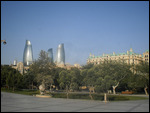
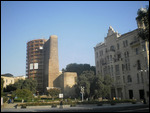
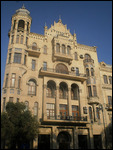
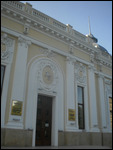
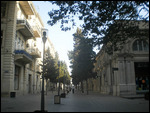
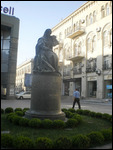
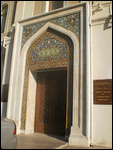
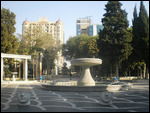
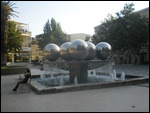
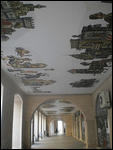
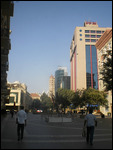
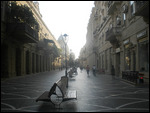
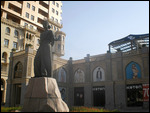
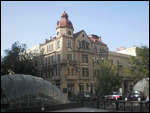
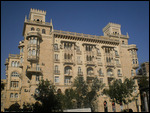
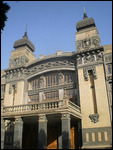
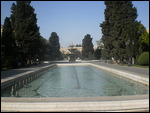
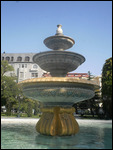
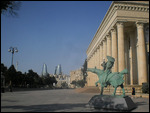
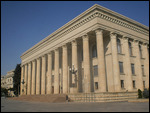
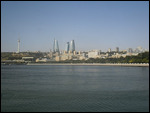
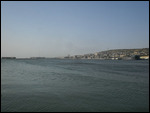
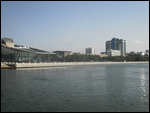
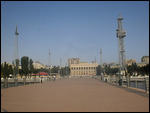



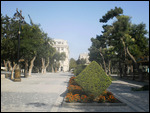
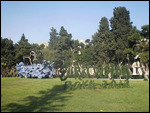
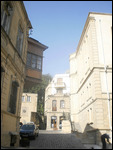
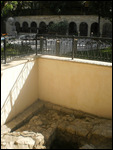
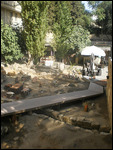
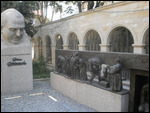
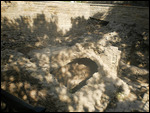
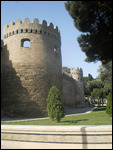
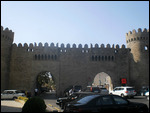
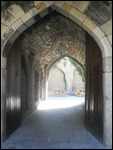
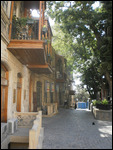
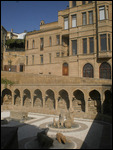
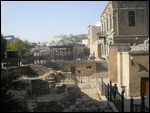
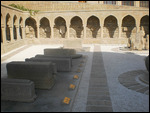
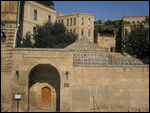
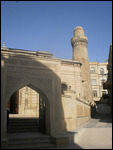
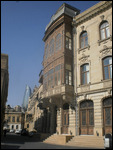
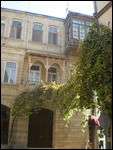
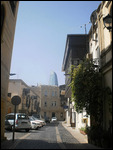
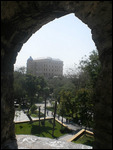
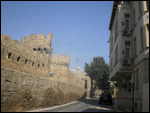
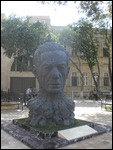
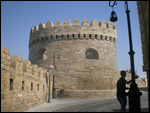
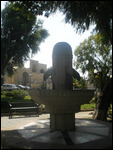
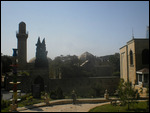
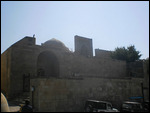
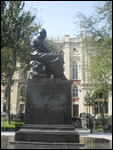
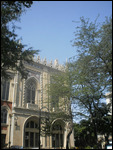
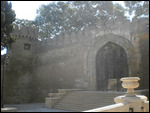
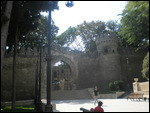
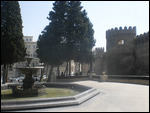
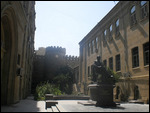
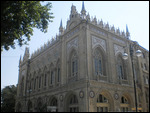
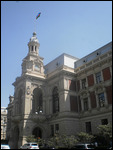
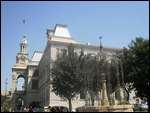
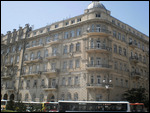
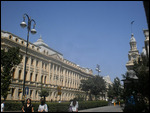
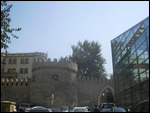
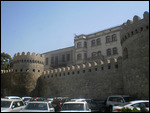
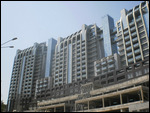
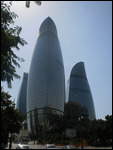
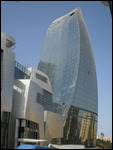
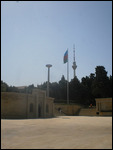
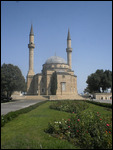
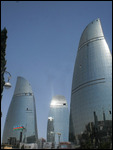
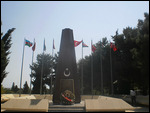
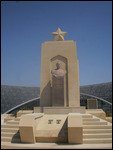
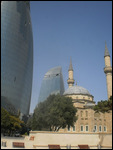
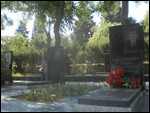
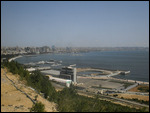
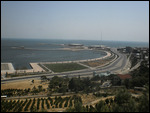
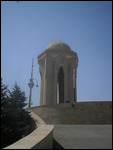
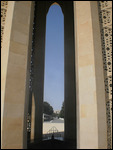
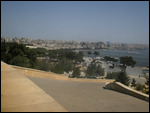
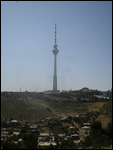
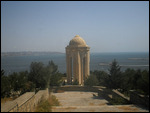
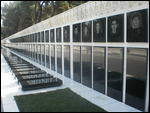
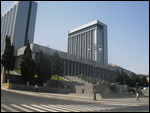
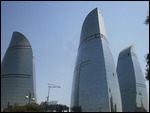
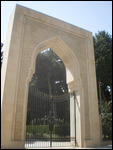
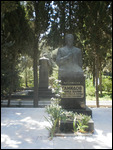
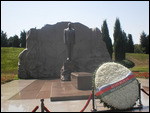
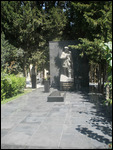
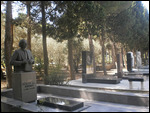
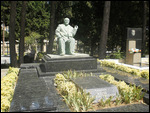
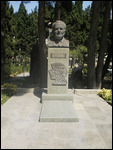
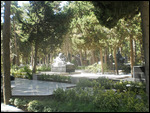
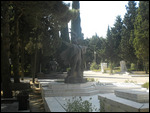
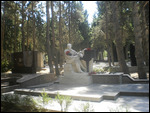
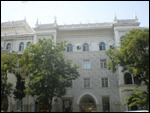
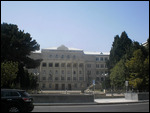
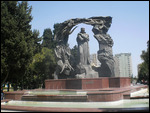
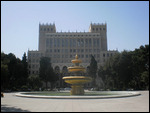
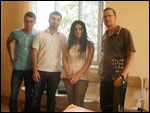
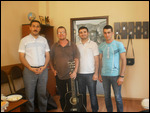
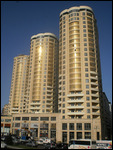
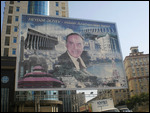
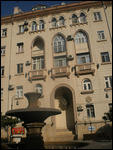
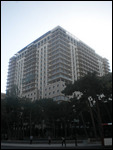
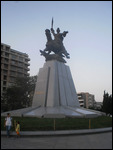
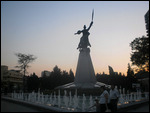
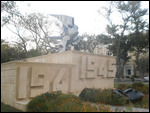
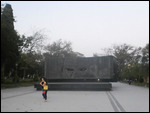
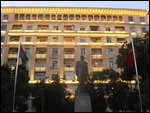
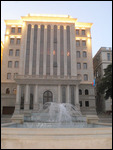
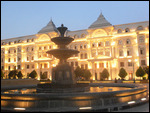
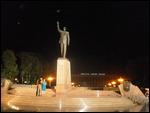
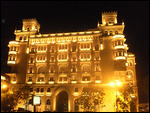
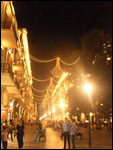
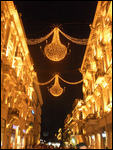
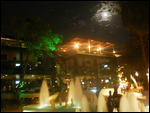
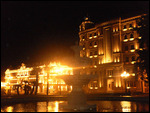
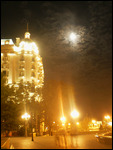
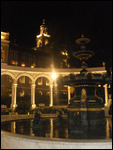
2025-05-23